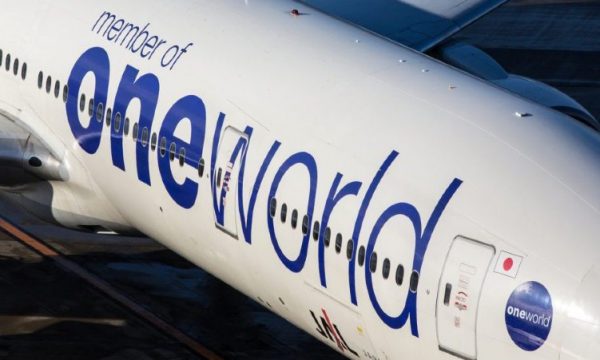SINGAPORE, 2 September 2021: The oneworld Alliance has outlined its path to achieving net-zero emissions by 2050, reiterating its commitment to sustainability across the alliance’s 14 member airlines.
The initial oneworld carbon roadmap unveiled Tuesday illustrates how the alliance will meet its net-zero emissions target that was first announced in September 2020. Oneworld member airlines will reach the target through various initiatives, including fleet modernisation, improvements in operational efficiencies, advancing the use of sustainable aviation fuel (SAF) certified by ICAO-approved schemes, and carbon offsets and removals.

On behalf of member airlines, oneworld is calling on government and industry stakeholders for their support and partnership in decarbonising aviation. As aircraft technology evolves and the availability of SAF continues to develop, the roadmap will be updated to reflect the alliance’s approach towards reaching its net zero emissions target by 2050.
Oneworld Alliance chairman and Qatar Airways group chief executive Officer Akbar Al Baker said: “Even as we continue to navigate through the complexities of the pandemic, outlining our ‘path to net zero emissions by 2050’, demonstrates that we remain steadfast with our responsibility to care for the environment and promote a sustainable air transport.
“Today, oneworld establishes another milestone and call all the industry stakeholders and governments to play their role and collaborate with airlines. We need a strong commitment to improve airspace inefficiency, incentivise the commercial use of recognised sustainable aviation fuels and accelerate the development of new propulsion and airframe technologies.”
Oneworld CEO Rob Gurney added: “The carbon roadmap that we have released today demonstrates our alliance’s commitment to environmental sustainability. Despite the uncertainty faced by the industry, we remain focused on playing our part in reducing emissions. We are thankful to our member airlines for their support and to IAG for their leadership in this important collaboration and look forward to our continuing partnership in advancing sustainability.”
Oneworld airlines reducing emissions
- Alaska Airlines, which joined oneworld as its newest member in March 2021, has announced a commitment to net zero emissions by 2040.
- American Airlines has committed to set an intermediate, science-based target for reducing emissions by 2035.
- IAG (parent of British Airways and Iberia) plans to power 10% of its flights with SAF by 2030 and has extended its net zero emissions target to its supply chain.
- Cathay Pacific has pledged to cut their ground emissions by 32% from its 2018 baseline before the end of 2030 through enhancing energy-saving measures and exploring renewable energy options in its premises and ground operations as part of its net-zero carbon emissions commitment.
- Finnair is committed to carbon neutrality by 2045 and to halve its net emissions by 2025 from 2019 levels.
- Japan Airlines committed to using SAF at 10% of its total fuel consumption, reducing total emissions in 2030 by 10% compared to 2019.
- The Qantas Group has committed to reaching net-zero carbon emissions by 2050 and investing A$50 million in developing a sustainable aviation fuel industry.
- Qatar Airways has further enhanced environmental sustainability education for its employees, including engaging with IATA on additional sustainability training.
- S7 Airlines recently launched its Green Steps edutainment programme. It includes short lessons in the S7 Airlines mobile app on how to make travel more environmentally friendly, and users could earn S7 Priority miles when they pass tests after lessons. S7 Airlines uses blankets on board that are made from recycled plastic bottles and has reduced the packaging for business-class travel kits.
- SriLankan Airlines is continuing its sustainability commitments through its aviation fuel efficiency enhancement programme, conservation through the education programme and waste upcycling project.







